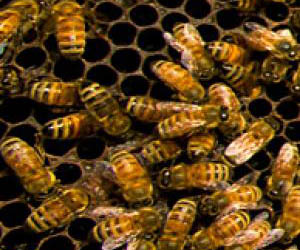Students Research leads to inventive solution for CCD
Silencing the expression of the viral genes helps controlling Bee Colony collapse Disorder

Six Hebrew University of Jerusalem faculty and students won Kaye Awards for Innovation for research they have done in solving bee colony collapse disorder.
Bee colony collapse disorder (CCD) is a global problem that has led to the deaths of a large number of the pollinating insects and inflicted losses of an estimated $35 billion worth of crops annually in the US alone.
After Prof. Ilan Sela discovered a new virus called IAPV and registered it in a public database, a US group doing a metagenomic study associated the virus with the phenomenon of CCD.
Subsequently a group of investors approached Sela, asking him to be chief scientist of an Israeli start-up company, Beeologics, which targets bee diseases and pests and received a license to develop its technology from HU’s Yissum technology transfer company. Within three years, the company developed a method of controlling IAPV by silencing the expression of the viral genes, and thereby controlling CCD. It also managed to bring another apiary threat, the Varroa destructor mite, under control. Two patents were written to protect these inventions.
Last year, Monsanto bought Beeologics for $120 million, and the gene silencing product, Remebee, is now commercialized.




